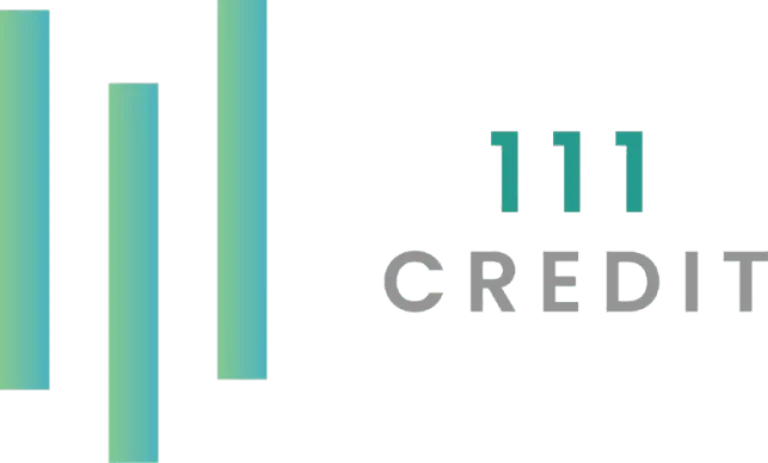Best Loans for Bad Credit in Singapore
Updated: 10 Feb 2026
- Financing options for customers who may not qualify with other lenders
- Loan offers starting from 16% APR
- Same day offer and disbursement
- No early repayment fees
- Convenient locations near to you
- Late interest is chargeable upon late repayment
The information displayed above is for reference only. The actual rates offered to you will be based on your credit score and is subject to the provider's approval.
- Enjoy the lowest interest rates in Singapore
- Get your loan disbursed in just 3 minutes
- Borrow up to 6x your monthly income
- No early repayment fee
- Conveniently located branches
- Trusted and reputable personal loan provider
- Fully licensed & regulated by the Ministry of Law
- Subject to 10% admin fee
The information displayed above is for reference only. The actual rates offered to you will be based on your credit score and is subject to the provider's approval.
- Risk-based pricing—get guaranteed interest rates reviewed and approved
- Borrow up to 6x your monthly income
- 30 minutes loan approval time
- Transparent fee structure with no hidden charges
- Trusted and reputable personal loan provider
- Fully licensed & regulated by the Ministry of Law
- Subject to 8% admin fee
- Max loan tenure of 12 months only
The information displayed above is for reference only. The actual rates offered to you will be based on your credit score and is subject to the provider's approval.
- Apply in just 2 minutes with Singpass
- 0% interest payday loans for eligible applicants
- Get a free credit report (worth $8.72) when you apply with us
- Chosen by more than 5,000 satisfied customers with 5-star ratings on Google
- Guaranteed interest rate, reviewed and approved upfront (risk-based pricing)
- Borrow up to 6x your monthly income
- Get approved in under 10 minutes
- No hidden charges
- Trusted and reputable personal loan provider
- Fully licensed & regulated by the Ministry of Law
- Subject to 10% admin fee
The information displayed above is for reference only. The actual rates offered to you will be based on your credit score and is subject to the provider's approval.
- Free interest for customers that take a 3 month loan if full payment is paid on the 1st month
- Same day disbursement
- Borrow as low as S$200
- Subject to 6% admin fee
The information displayed above is for reference only. The actual rates offered to you will be based on your credit score and is subject to the provider's approval.
- Borrow up to 6 times your monthly salary
- Same-day appointment, quick approval and instant cash disbursement
- Tailored loan plans - Match needs and repayment abilities
- 5-star Google reviews from customers for stress free and smooth process
- Subject to 8-10% admin fee
The information displayed above is for reference only. The actual rates offered to you will be based on your credit score and is subject to the provider's approval.
- Flexible Repayment Options: Offering easier repayment plans with longer tenure can help borrowers manage their finances more effectively.
- Customer-Centric Approach: Understanding customers' needs and providing personalized solutions can build trust and loyalty.
- Friendly and Approachable: Having a friendly and approachable team can make borrowers feel more comfortable and supported throughout the borrowing process.
- Transparent and Competitive Rates: Providing clear and competitive interest rates can help borrowers make informed decisions.
- Quick and Easy Application Process: Streamlining the application process can help borrowers get the funds they need quickly and efficiently.
- Professional and Confidential Service: Maintaining professionalism and confidentiality can help borrowers feel secure and respected.
- Subject to 8-10% admin fee
The information displayed above is for reference only. The actual rates offered to you will be based on your credit score and is subject to the provider's approval.
- Completely digitalised loan process — fast, simple, and paperless
- Subject to min. 8% admin fee
The information displayed above is for reference only. The actual rates offered to you will be based on your credit score and is subject to the provider's approval.
1. Go to Standard Chartered's website and click "Apply Now” button under Personal Loans
2. Fill out an application and submit all required documents
3. Wait for approval of personal loan from Standard Chartered
- Enjoy low interest rates from 1.80% p.a. (EIR: 3.44% p.a.) for longer tenures. Get instant loan approval and cash disbursement in as quick as 15 minutes to your designated bank account.
- Enjoy a 5-year annual fee waiver on your Standard Chartered Platinum Visa credit card
- Min. loan amount of S$1,000
- Max. loan amount of up to S$250,000
- Allow for change of loan tenure.
- Allow for flexible repayment without late fees.
- Waiver of S$50 annual fee (from 2nd year till expiry of loan) if all instalments for the year are paid on or before the due dateMax. loan amount of up to 4X monthly salary, capped at S$250,000
- Read our full review of the Standard Chartered CashOne Personal Loan
- EIR calculated is not yet inclusive of the first-year annual fee of S$199. Interest rate in your application will be based on your credit profile as determined by Standard Chartered.
- First year annual fee: S$199
- Early repayment fee: S$150 or 3% of the outstanding principal, whichever is higher
- Change of tenure: S$50 per change
- Late payment fee: S$100
- Copy of Passport (with at least 6 months' validity), including the page with address displayed (where applicable)
- Copy of your Employment Pass
- Any ONE of the following documents:
- Latest utility bill, rates or tax bill
- Latest bank / credit card statement (e-Statements are accepted)
- Rental agreement showing your address
- Latest mobile phone statement or pay-TV statement
- Letter from employer stating current address
- Government-issued document stating current address (e.g. IRAS, CPF, ICA)
No documents required for Singaporeans / PRs applying via SingPass.
For foreigners applying via SingPass, please prepare the following:
The information displayed above is for reference only. The actual rates offered to you will be based on your credit score and is subject to the provider’s approval.
1. Download the Trust App and navigate to the Instant Loan section
2. Fill out an application and submit all required documents
3. Wait for approval of personal loan
- LOWEST Interest Rates in the Market from 1.56% p.a. (EIR 3.00%* p.a.) with no processing or hidden fees (until further notice)
- Flexible repayments. Choose your desired personal loan amount and tenure. Repay with fixed instalments over 3 to 60 months.
- Fast approval in 60 seconds.
- *EIR calculated based on loan amount of S$90,000 and tenure of 60 months from 1 Jan 2024. Maximum EIR may be up to 22.34% p.a. based on your personal credit profile.
- Deposit Insurance Scheme: SGD deposits of non-bank depositors are insured by the SDIC, for up to S$100,000 in aggregate per depositor per Scheme member by law.
- Min. age requirement: 21 years old
- Minimum annual income of S$30,000 for Singaporean citizen or PR or S$60,000 for foreigners with valid work pass
1. NRIC (Front & Back)
2. Salaried employees: Latest month’s computerised payslip or latest 6 months’ CPF contribution history statement
3. Self-employed individuals: Last 2 years’ Income Tax Notice of Assessment
4. Commission-based earners: Latest 3 months payslip or latest 6 months' CPF contribution history statement
The information displayed above is for reference only. The actual rates offered to you will be based on your credit score and is subject to the provider's approval.
- Click "Apply Now" on CIMB Personal Loan Listing
- Complete the application via Singpass Myinfo and submit the required documents
- Wait for approval for CIMB
- Receive cash instantly upon approval
- Enjoy attractive interest rates from as low as 1.60%* p.a. and zero* processing fees (EIR from 2.80% p.a.) for 2-5 years
- Min. loan amount of S$2,000
- Min. income for Singaporeans/PRs: S$20,000 p.a.; Min. income for Malaysians (Non-PR): S$30,000
- Early redemption fee of 3% or S$250, whichever is higher.
- Late payment fee: S$100
- NRIC (Front & Back)
- Salaried Employees: Latest computerised payslip or latest CPF/NOA statements
- Self-Employed: Latest 2 years' NOA
- Commissioned/Variable Income Earners: Latest CPF/NOA statements
- Malaysian NRIC
- Passport (minimum 6 months validity
- latest 3 months pay slip
- Foreign Exchange Notice Declaration Form
For Malaysians, you will need to provide the following supporting documents in the application:
The information displayed above is for reference only. The actual rates offered to you will be based on your credit score and is subject to the provider's approval.
- One Application, Multiple Offers
- Access to 30+ verified lenders
- Guaranteed 0.5% cashback on your loan. T&Cs apply.
- No impact on your Credit Score
- Get offers within 2 business hours
- Trusted by thousands
- Fair and unbiased matching
- Credit based pricing - Loan terms differ based on your credit profile
- Subject to 10% admin fee
The information displayed above is for reference only. The actual rates offered to you will be based on your credit score and is subject to the provider's approval.
- Singpass login, 2-minute application, no paperwork
- Instant cash or PayNow once approved
- Takes about 30 minutes to approve
- Transparent fee structure, no hidden fees
- 0% interest on payday loans (if eligible)
- Interest is pro-rated if you repay early
- Get up to 6X your monthly income
- Subject to admin fees from 7%
The information displayed above is for reference only. The actual rates offered to you will be based on your credit score and is subject to the provider's approval.
- Apply in just 2 minutes with your digital process, Singpass login – no paperwork needed
- Funds will be disbursed instantly via cash or PayNow upon approval
- Get a swift decision in as little as 30 minutes
- Clear fees, no hidden charges
- 0% interest payday loans for those who qualify
- Pro-rated interest if early settlement, instead of early settlement fees
- Borrow up to 6 times your monthly salary
- Enjoy a quick digitalised loan process
- Subject to admin fees from 7%
The information displayed above is for reference only. The actual rates offered to you will be based on your credit score and is subject to the provider's approval.
- Guaranteed interest rate, reviewed and approved upfront (risk-based pricing)
- 0% interest payday loans for eligible applicants
- Flexible repayment dates
- Apply in just 2 minutes using Singpass—fully digital, no paperwork
- Instant disbursement via PayNow or in cash upon approval
- Get approved in 30 minutes
- Trusted by over 3,000 customers with 5-star Google reviews
- Enjoy a quick digitalised loan process
- Subject to 8% admin fee
The information displayed above is for reference only. The actual rates offered to you will be based on your credit score and is subject to the provider's approval.
- Reputable SFA-certified lender with over 2,000 5-star Google reviews.
- Fully licensed and regulated by the Ministry of Law.
- Fuss-free online application with SingPass.
- Low interest rates between 1% and 3.92% monthly.
- Transparent pricing with no hidden fees.
- Loan approval and disbursement in as little as 20 mins.
- trusted by over 3,000 customers with 5-star Google reviews
- Enjoy a quick digitalised loan process
- Subject to 7% admin fee
The information displayed above is for reference only. The actual rates offered to you will be based on your credit score and is subject to the provider's approval.
- Apply in just 2 minutes using Singpass – fully digital, no paperwork
- Instant disbursement via PayNow or in cash upon approval
- Loan approval in 30 minutes
- Transparent fee structure with no hidden charges
- Subject to 8% admin fee
The information displayed above is for reference only. The actual rates offered to you will be based on your credit score and is subject to the provider's approval.
- Conveniently located at Jurong East (West Area)
- Apply instantly with Singpass – just 2 minutes!
- Fast approval within 30 minutes
- 0% interest payday loans for eligible applicants
- Licensed and trusted by over 5,000 happy customers
- No hidden fees – 100% transparent rates
- Flexible repayment options to suit your needs
- Instant disbursement via PayNow or cash upon approval
- Subject to 7-10% admin fee
The information displayed above is for reference only. The actual rates offered to you will be based on your credit score and is subject to the provider's approval.
1. Apply once via Singpass on lendela.com
2. Get live quotes from over 70 trusted loan providers
3. Choose your preferred loan and get your money
- Apply once, get multiple loan offers
- Get quotes from over 70 verified loan providers
- No impact on your credit score
- Choose your preferred loan and cash out within the day
- Full loan concierge service
- Free service, no hidden costs
- Interest rate & fees vary depending on chosen loan provider (18.25% p.a. interest on average, 5% processing fee on average)
Use Singpass MyInfo to get more accurate quotes
The information displayed above is for reference only. The actual rates offered to you will be based on your credit score and is subject to the provider's approval.
Learn more about the best loans for bad credit in Singapore
Our pick for a fast approval process
Credible.sg
Why we chose this: Credible.sg acts as a bridge between borrowers and various vetted lenders in Singapore, offering a streamlined approach to finding suitable loan options, particularly for those who may have difficulty qualifying with traditional lenders. They highlight quick approvals and disbursement, making them a potential choice for borrowers with bad credit looking for personal loans to cover urgent financial needs.
Looking for bank loan options instead?
While licensed money lenders can provide fast access to cash with flexible eligibility requirements, some borrowers may prefer the stability and lower interest rates typically offered by banks. If you're exploring more traditional financing options, SingSaver also partners with trusted banks in Singapore to bring you competitive personal loan offers. These bank loans may come with longer repayment periods, lower total costs, and promotional perks.
Here are some recommended bank loan options you can consider:
Our pick for instant cash disbursement
Standard Chartered CashOne Personal Loan
Why we chose this: The Standard Chartered CashOne Personal Loan offers instant loan approval and disbursement, potentially within 15 minutes, directly to your designated bank account. Combined with competitive interest rates and attractive cashback rewards for longer tenures, it's a strong contender for borrowers needing quick access to funds.
Our pick for the best debt consolidation loan
HSBC Personal Loan
Why we chose this: The HSBC Personal Loan offers a competitive interest rate starting at 2.92% p.a. (EIR 5.50% p.a.), making it an attractive option for consolidating debt. The availability of longer tenures, up to 7 years, also provides flexibility in managing repayment.
Our pick for long repayment tenures
UOB Personal Loan
Why we chose this: The UOB Personal Loan offers a range of repayment tenures, allowing borrowers to spread out their loan repayments over a longer period. This can be beneficial for managing larger loan amounts or for those seeking lower monthly payments.
Our pick for personalised loan options
Citibank Quick Cash Personal Loan
Why we chose this: The Citibank Quick Cash Personal Loan offers a streamlined approach to accessing funds, leveraging your existing Citibank relationship. The personalised interest rates and flexible loan tenures allow borrowers to tailor the loan to their specific financial needs.
What are bad credit loans?
As the name suggests, personal loans for bad credit in Singapore are there to help people with poor credit scores, particularly those who can't get loans from regular banks because of their credit history.
What constitutes bad credit in Singapore?
The Credit Bureau Singapore (CBS) is the primary credit bureau in Singapore, and it provides the credit scoring system used by most financial institutions to assess an individual's creditworthiness and debt-to-income ratio.
By CBS, credit scores range from 1,000 to 2,000. A score under 1,723 is considered poor and poor credit is typically a result of late payments, not paying back debts, and using too much credit.
|
Risk Grade |
Score Range |
Probability of Default |
|
AA |
1,911 - 2,000 |
≤ 0.27% |
|
BB |
1,844 - 1,910 |
0.27% to 0.67% |
|
CC |
1,825 - 1,843 |
0.67% to 0.88% |
|
DD |
1,813 - 1,824 |
0.88% to 1.03% |
|
EE |
1,782 - 1,812 |
1.03% to 1.58% |
|
FF |
1,755 - 1,781 |
1.58% to 2.28% |
|
GG |
1,724 - 1,754 |
2.28% to 3.48% |
|
HH |
1,000 - 1,723 |
≥ 3.48% |
Bad credit loans in Singapore can be either secured or unsecured. Secured loans require collateral, such as a car or fixed deposit, which the lender can seize if the borrower defaults. This reduces the risk for the lender, making them more likely to approve the loan even with a low credit score.
Unsecured loans, on the other hand, do not require collateral and are based primarily on the borrower's creditworthiness and income. Due to the higher risk for the lender, unsecured loans for bad credit are generally harder to obtain and may come with higher interest rates.
Bad credit loan amounts in Singapore can vary, but they are generally smaller than loans offered to borrowers with good credit.
Typical loan amounts might range from a few hundred to several thousand dollars, depending on the lender and the individual's financial situation. Interest rates for loans for terrible credit are typically higher than those for borrowers with good credit, reflecting the increased risk for the lender.
Repayment terms for bad credit loans are generally shorter, ranging from a few months to a few years.
Bad credit loan interest rates and fees
Current rates
Interest rates for bad credit loans in Singapore can range from 5% p.a. to 6.5% p.a. (EIR), this is considerably less than some countries such as the USA, where bad credit loans can have interest rates ranging from 20% to even 30%.
Common fees
Fees associated with loans for bad credit in Singapore can impact the overall cost of borrowing. These include:
-
Processing fees: Some lenders charge a one-time fee to process the loan application. This can be a fixed amount or a percentage of the loan. Some lenders advertise "no processing fees."
-
Late payment fees: These are charged for missed payments. The amount varies and can be a fixed sum or a percentage of the overdue amount.
-
Early repayment fees: Some lenders charge a fee for paying off the bad credit loan early. However, this is becoming less common, and several lenders now waive these fees.
-
Other potential fees: These may include administrative fees, legal fees, or fees for specific services. Always ask for a full breakdown of potential fees.
Expert take: How to increase your chances of approval for bad credit loans
Different lenders in Singapore have different criteria, and some specialise in providing loans for individuals with less-than-perfect credit. It's worth exploring various options and comparing offers. Consider using a loan comparison platform or pre-qualifying with multiple lenders to check your eligibility without impacting your credit score. This will give you a good starting point for finding a suitable loan.
Calculate personal loan payments
To help you estimate your monthly repayments for a personal loan with bad credit in Singapore, you can use a personal loan calculator. These calculators are typically available on the websites of banks and financial institutions.
You can experiment with different loan amounts, interest rates, and repayment terms to see how they affect your monthly payments. Knowing this information ahead of time can help you better manage your personal loan payments.
Types of bad credit loans in Singapore
There are several types of loan options for those with bad credit scores in Singapore:
Shop for other types of bad credit personal loans in Singapore:
Bad credit loans pros and cons
Pros:
-
Fast approval and funding.
-
Fixed, predictable repayments.
-
Can improve credit score if repaid on time.
Cons:
-
Higher interest rates than regular personal loans.
-
Potential risk of default due to financial strain.
-
Some lenders may have hidden fees or predatory practices.
Where to get a personal loan for bad credit in Singapore
If you have a less-than-perfect credit history and are looking for a personal loan with bad credit in Singapore, there are several avenues you can explore:
-
Online lenders: Several online lenders in Singapore cater specifically to borrowers with bad credit. These lenders may offer bad credit loans with more flexible eligibility criteria than traditional banks. They might consider factors beyond your credit score, such as your income stability and employment history.
-
Licensed money lender: Licensed money lenders can be more flexible than traditional banks when it comes to giving personal loans to individuals with bad credit scores. They often offer smaller loan amounts and may have less stringent credit score requirements. However, it's crucial to ensure that the lender is reputable and licensed to operate legally.
-
Non-bank financial institutions: These institutions, such as credit unions or online lenders, sometimes have more lenient criteria for borrowers with bad or even terrible credit scores. They might offer competitive rates and terms on personal loans, but it’s wise to compare offers and read reviews to find a trustworthy option.
-
Banks and financial institutions: While banks generally have stricter lending criteria, some may offer bank personal loans with bad credit options or have more lenient policies for existing customers. It's worth checking with your current bank or exploring options from different banks to see if you qualify.
Saver-savvy tip
Some banks and financial institutions in Singapore may be willing to look beyond just your credit score, especially if you're an existing customer or have a good banking history with them. They might consider factors like your income stability, employment history, and overall financial situation. It's worth checking with your current bank or exploring options from different banks, as their lending criteria can vary. You can also use SingSaver to compare loan offers and find lenders that may be more lenient towards applicants with less-than-perfect credit scores.
6 Steps to get a personal loan for bad credit in Singapore
Looking to apply for a loan while having terrible credit? Here’s a step-by-step guide on how to do so:
1. Check your credit
Before applying for a bad credit loan Singapore, you can perform a hard credit check by requesting for your credit score from the Credit Bureau Singapore (CBS). Knowing your score helps you understand where you stand and what kind of loan terms you might qualify for. A lower score might mean higher interest rates or stricter eligibility requirements.
2. Review your budget
Carefully review your monthly income and expenses to determine how much you can realistically afford to repay each month. Choose a loan amount and repayment tenure that aligns with your budget to avoid late payment fees and further damage to your credit score.
3. Check lenders' borrowing requirements
Different lenders have different criteria for bad credit loans. Check the minimum income requirements, employment history requirements, and any other eligibility criteria before applying. Some lenders may also have specific requirements for foreigners, such as a valid Employment Pass and a minimum length of residency in Singapore.
4. Pre-qualify with multiple lenders
Many lenders offer a pre-qualification process that involves a soft credit check, which doesn't affect your credit score. This allows you to compare potential interest rates and loan terms from different lenders without any negative impact on your credit.
5. Submit an application
Once you've chosen a lender, gather the necessary documents, typical application requirements include:
-
Proof of income (payslips, tax returns)
-
Identification (NRIC for Singaporeans/PRs, passport for foreigners)
-
Employment details (employment contract, employment pass for foreigners)
Submit your application online or in person, depending on the lender's requirements.
6. Add the new loan payment to your budget
Once you've secured the loan for bad credit Singapore, incorporate the monthly repayment into your budget. Consider setting up automatic payments to avoid missing any deadlines and incurring late payment fees. This also helps build good credit habits for the future.
Other tips to qualify for a bad credit loan
-
Consider a secured loan: If you have assets to use as collateral, a secured loan might offer better chances of approval and potentially lower interest rates.
-
Explore licensed moneylenders: Licensed moneylenders often have more flexible eligibility criteria for loans for bad credit.
-
Improve your creditworthiness: Take steps to improve your credit score over time, such as paying bills on time, avoid defaulting on buy now pay later payments, and reducing existing debt.
-
Seek financial advice: If you're struggling with debt or credit issues, consider seeking professional financial advice to explore alternative solutions and improve your financial situation.
Applying for bad credit loans? Use this checklist
To expedite your bad credit personal loan application in Singapore, and increase your chances of approval, it's helpful to gather the necessary documents beforehand. While specific requirements may vary between lenders, here's a general checklist of what’s required:
-
Proof of identity:
-
Singaporeans/PRs: NRIC (front and back)
-
Foreigners: Passport and valid work pass (e.g., Employment Pass, S Pass)
-
Proof of income:
-
Salaried employees: Latest computerised payslip or latest 6 months' CPF contribution history statement
-
Self-employed individuals: Latest 2 years' Income Tax Notice of Assessment and latest 3 months' bank statements
-
Commission-based earners: Latest 3 months' payslips or latest 6 months' CPF contribution history statement
-
Proof of residence:
-
Latest utility bill or tenancy agreement
-
Other supporting documents:
-
Latest Income Tax Notice of Assessment (for all applicants)
-
Bank statements (for self-employed or commission-based earners)
-
Educational certificates (for certain lenders)
How to compare the best loans for bad credit in Singapore
Comparing loans for bad credit in Singapore? Consider these factors:
-
Effective Interest Rate (EIR): The EIR gives you a true picture of the total cost, including interest and fees. Compare EIRs from different lenders to find the most affordable bad credit loan.
-
Legitimacy: Always ensure the lender is licensed by the Ministry of Law to avoid predatory practices. Check their website or the Ministry of Law website for verification.
-
Monthly payments: Choose a loan with monthly repayments that fit comfortably within your budget. Consider the loan tenure and its impact on the monthly payment amount.
-
Additional loan features: Look for extra loan features like flexible repayments or online account management. These can make it easier to manage your loan.
Compare effective interest rate range across lenders in Singapore
|
Provider |
EIR |
|
16% p.a. |
|
|
5.28% p.a. |
|
|
5.43% p.a. |
|
|
5.50% p.a. |
|
|
5.43% p.a. |
|
|
Citi Quick Cash |
6.50% p.a. |
How to spot a bad credit loan scam
When you're looking for a bad credit loan in Singapore, it's important to be wary of predatory lenders or scams. Learn how to spot a personal loan scam with these red flags:
-
No credit check or guaranteed approval: Legitimate lenders in Singapore will always conduct a credit check to assess your creditworthiness. If a lender promises guaranteed approval without checking your credit history, it's a sign they may be operating illegally or engaging in predatory lending practices.
-
Upfront fees or payment requests via gift cards: Licensed moneylenders in Singapore are allowed to charge fees, but these fees must be clearly disclosed and should be paid only after the loan agreement is signed. Be wary of lenders asking for upfront fees before approval or those requesting payment through unconventional methods like gift cards, as this is a common tactic used by scammers.
-
Pressure to sign quickly or lack of transparency: Predatory lenders often pressure borrowers to sign loan agreements quickly without giving them sufficient time to read and understand the terms and conditions. If a lender is not transparent about their fees, interest rates, or repayment terms, or if they rush you into signing an agreement, it's a warning sign.
Verifying if a lender is licensed in Singapore:
To protect yourself from bad credit loan scams, always verify if the lender is licensed in Singapore. You can do this by:
-
Checking the lender's website: Licensed moneylenders are required to display their license number on their website.
-
Verifying with the Ministry of Law: You can search for licensed moneylenders on the Ministry of Law's website using their name or license number.
-
Looking for the official licensed moneylender logo: Licensed moneylenders are required to display the official logo on their website and marketing materials.
Alternatives to personal loans for bad credit in Singapore
Looking for alternatives to get loans with bad credit? Here are some of the options worth considering:
Licensed money lender
Licensed money lenders can be more flexible than traditional banks when it comes to giving personal loans to individuals with bad credit scores. They often offer smaller loan amounts and may have less stringent credit score requirements. However, it's crucial to ensure that the lender is reputable and licensed to operate legally.
Non-bank financial institutions
These institutions, such as credit unions or online lenders, sometimes have more lenient criteria for borrowers with bad or even terrible credit scores. They might offer competitive rates and terms on personal loans, but it’s wise to compare offers and read reviews to find a trustworthy option.
Applying for smaller sums with banks
Some banks may consider applications for smaller loan amounts, even if your credit score is bad. These loans are typically easier to qualify for and can help rebuild credit if managed responsibly. After applying, don’t forget to check your personal loan application status.
Home equity loan
If you're a homeowner, a home equity loan can be an alternative to a personal loan, even with bad credit. This type of loan allows you to borrow against the equity you've built up in your property. Because your home acts as collateral, lenders may be more willing to approve a home equity loan even if your credit score isn't perfect. However, it's essential to remember that you risk losing your home if you fail to repay the loan.
Frequently asked questions about loans for bad credit in Singapore
The "best" lender depends on your individual needs and circumstances. Compare interest rates, fees, and eligibility criteria from different lenders, including banks, licensed moneylenders, and online platforms, to find the most suitable option for your situation.
Online lenders and licensed moneylenders often offer faster approval and disbursement compared to traditional banks. Look for lenders that advertise "instant approval" or "quick cash" options.
Consider applying for a loan with an online lender or licensed moneylender. These options typically have less stringent requirements and faster processing times compared to banks.
No, legitimate lenders in Singapore will always conduct a credit check as part of their assessment process. Avoid lenders who promise loans with no credit check, as they may be operating illegally.
The loan amount you can borrow with bad credit depends on your income, credit history, and the lender's criteria. Generally, borrowers with lower credit scores may qualify for smaller loan amounts.
SingSaver’s best loans for bad credit (January 2026)
Credible: Best for fast approval
CIMB: Best for flexible repayment
Standard Chartered: Best for instant cash disbursement
HSBC: Best for debt consolidation
UOB: Best for long repayment tenure
Citibank: Best for personalised loan options


















